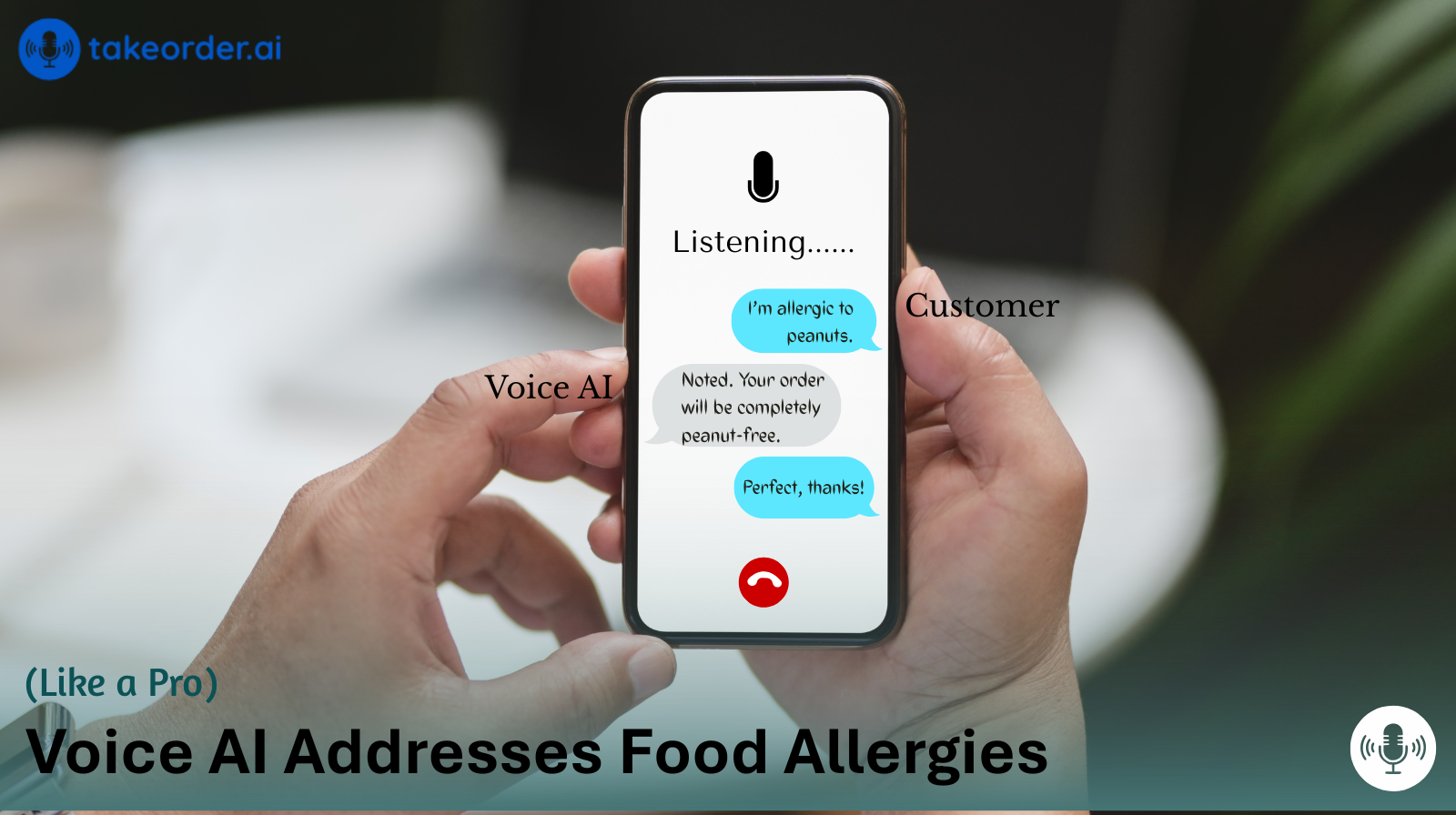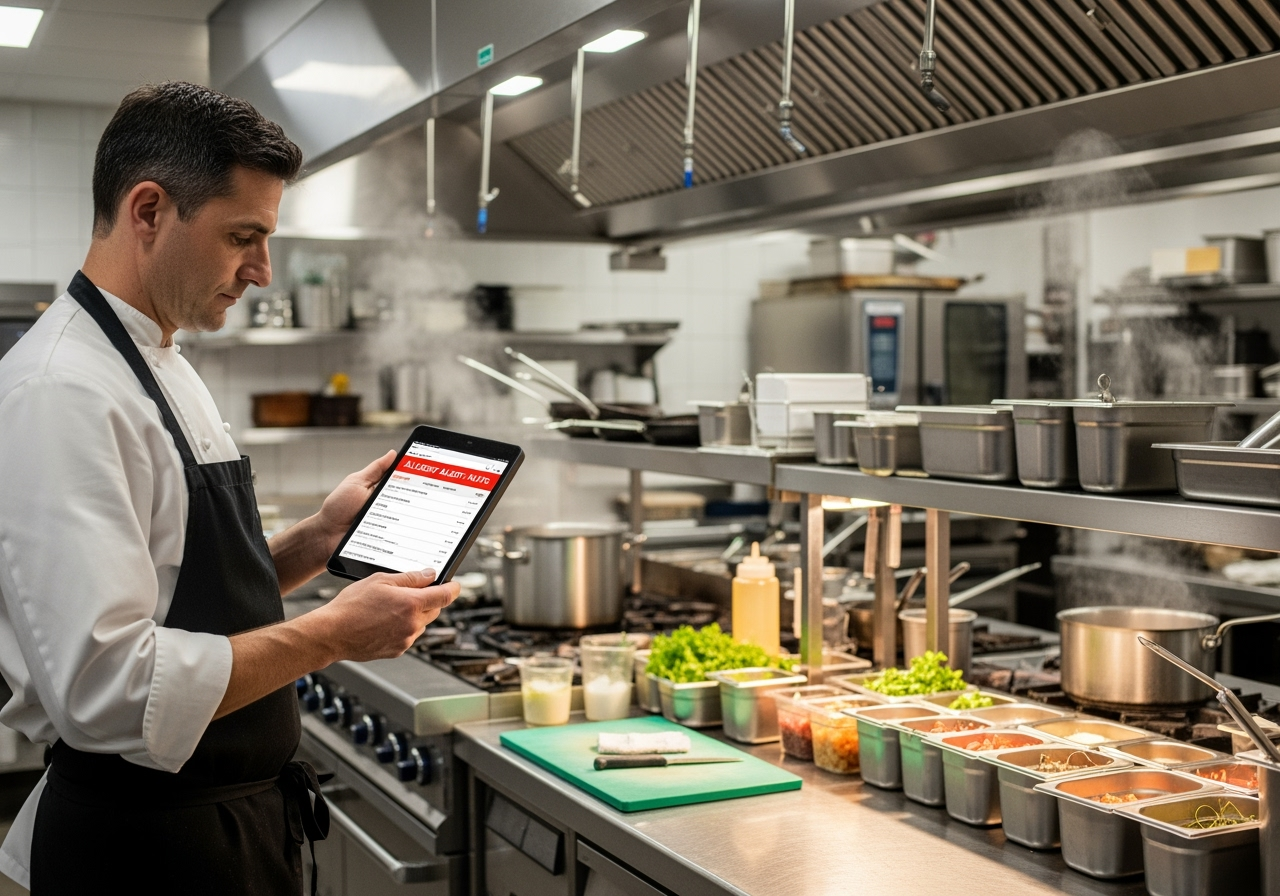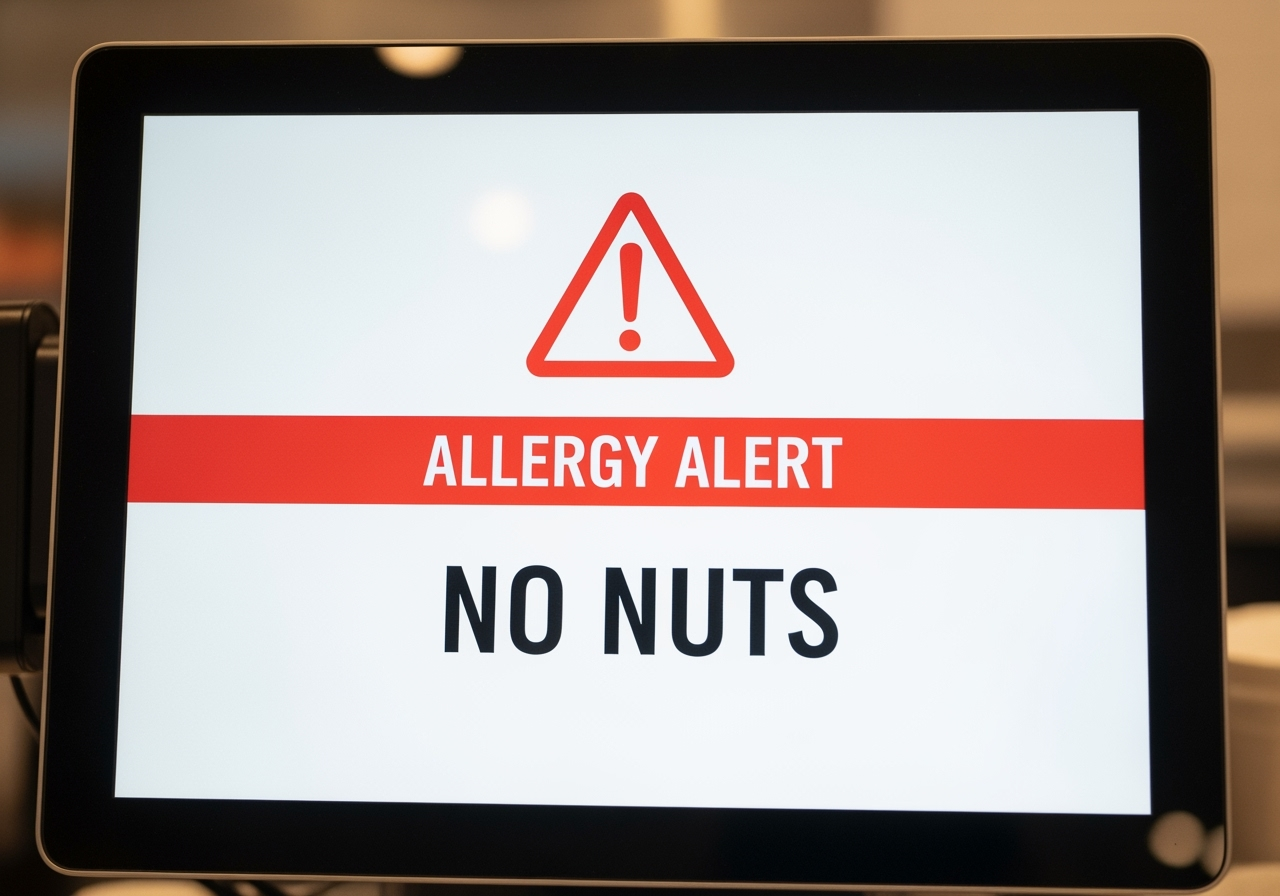
Introduction
Every 3 minutes, someone in America has a severe allergic reaction to food. For restaurants, one missed allergy note isn't just a bad review; it's a potential lawsuit and a life-threatening situation. In an industry where speed and accuracy are paramount, managing food allergies has become one of the most critical challenges restaurant owners face today.

Food allergies affect over 32 million Americans, with reactions ranging from mild discomfort to life-threatening anaphylaxis. For restaurants, the responsibility extends far beyond simply noting "no nuts" on an order ticket.
The legal landscape is unforgiving; food allergy lawsuits can result in settlements ranging from $50,000 to several million dollars, not to mention the irreparable damage to brand reputation.
The challenge intensifies during peak hours when restaurants handle hundreds of calls daily. A single miscommunication between a phone operator and kitchen staff can turn a routine order into a medical emergency. Traditional ordering systems, reliant on human accuracy under pressure, create multiple points of failure in the allergy management chain.
Human error is inevitable, especially in high-pressure restaurant environments. During rush hours, phone operators juggle multiple tasks, taking orders, answering questions, and managing wait times. In this chaos, critical allergy information can be missed, misheard, or inadequately communicated to kitchen staff.
Consider these common failure points:
The consequences extend beyond individual incidents. Restaurants face increased insurance premiums, staff training costs, and the constant anxiety of potential liability. Most critically, customer trust, once broken by an allergy incident, is nearly impossible to rebuild.
Takeorder AI transforms allergy management from a liability risk into a competitive advantage. The system employs sophisticated voice recognition technology specifically trained to identify and respond to allergy-related keywords and phrases.

The AI system recognizes over 200 variations of allergy-related phrases across multiple languages and accents. Whether a customer says "I'm allergic to shellfish," "no seafood please," or "I can't have any fish," the system immediately flags the order for special handling.
Key recognition capabilities include:
Once an allergy is detected, Takeorder AI initiates a multi-step verification process:
Takeorder AI doesn't just take notes; it actively prevents allergy exposure. When a customer mentions an allergy, the system instantly cross-references the restaurant's ingredient database, removing unsafe options from the conversation flow. This proactive approach eliminates the possibility of accidentally suggesting items containing allergens.
The AI seamlessly integrates with existing POS and kitchen display systems, ensuring allergy information travels with the order through every stage of preparation.
Kitchen staff receive clear, unmistakable alerts that include:
Every allergy-related interaction is automatically documented, creating a comprehensive audit trail.
This documentation serves multiple purposes:
Restaurants using Takeorder AI gain significant advantages beyond risk reduction. Customer confidence increases dramatically when diners experience consistent, thorough allergy management.
This reliability translates into customer loyalty, positive reviews, and word-of-mouth recommendations within allergy-conscious communities.

Customers with food allergies often avoid restaurants due to safety concerns. Takeorder AI's systematic approach to allergy management creates a reputation for safety that attracts this underserved market segment.
When customers know their allergies will be handled with precision and care, they become loyal advocates for the restaurant.
Kitchen and front-of-house staff experience significantly less anxiety when allergy management is systematized.
Clear protocols, automated alerts, and comprehensive documentation remove guesswork from allergy handling, allowing staff to focus on food quality and customer service.
Automated allergy management reduces the time spent on order clarification and kitchen communication.
Staff can process orders faster while maintaining higher safety standards, improving overall operational efficiency during peak hours.
As food allergies continue to increase in prevalence, restaurants must evolve their safety protocols to meet growing customer needs. Takeorder AI represents the next generation of restaurant technology, where artificial intelligence doesn't just improve efficiency but actively protects lives.
The system's continuous learning capabilities mean allergy management improves over time, adapting to new allergens, customer communication patterns, and safety protocols. This evolution ensures restaurants stay ahead of emerging allergy trends and regulatory requirements.
Food allergy management in restaurants has evolved from a simple accommodation to a critical safety imperative. Takeorder AI transforms this challenge into an opportunity, providing systematic, reliable, and comprehensive allergy management that protects customers while building business value.
For restaurant owners, the choice is clear: continue relying on human-dependent systems with inherent failure points, or embrace AI technology that makes allergy management foolproof. In an industry where a single mistake can have life-threatening consequences, Takeorder AI offers the reliability and precision that modern restaurants need.
Ready to see how Takeorder AI handles complex allergy scenarios?
Book a demo to experience the future of safe restaurant ordering.
Or explore our comprehensive solutions for voice-powered restaurant management.
Stay updated on our news and events! Sign up to receive our newsletter.
Thank you for signing up!
Something went wrong. Please try again later.